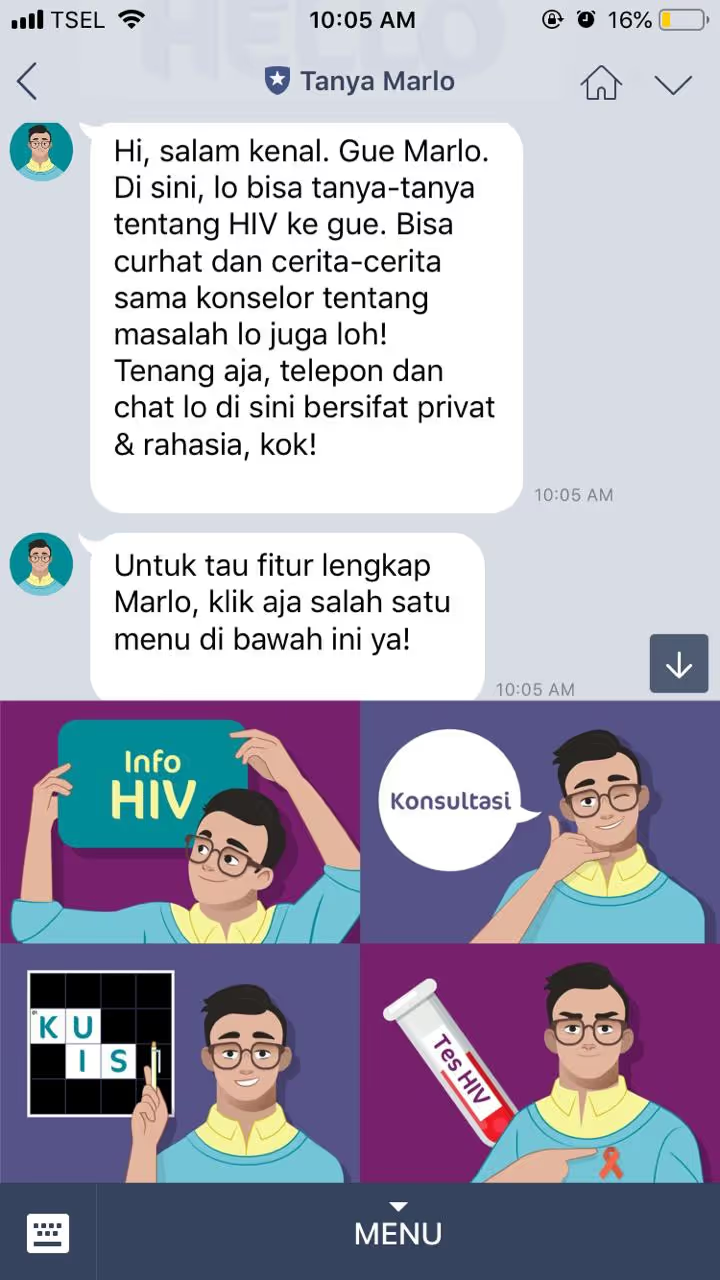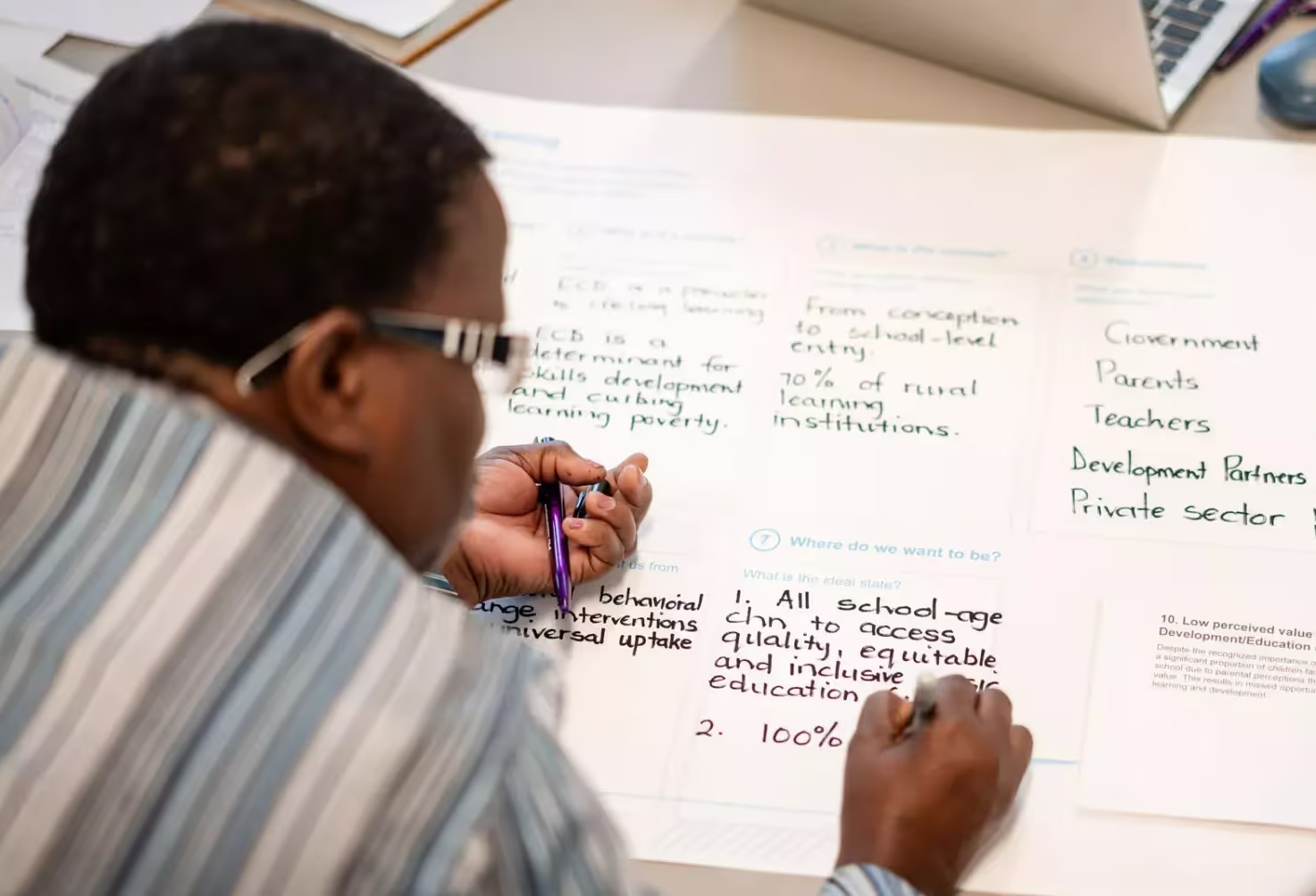Tanya Marlo

Tanya Marlo is a chat bot designed to simulate conversations with human users, developed by UNAIDS Indonesia in partnership with Nimbly Technologies. The chat bot serves to be the reliable go-to-source for all HIV-related information for young people in Jakarta, who are not reached through traditional HIV outreach programmes. By integrating Marlo into LINE, a chat messaging application popular among young people in Southeast Asia, users are able to ask any questions on HIV and get real time answers. By adding this chat bot in LINE, users can get interesting and relevant information about HIV and be rewarded by answering quizzes. Most importantly, users can book appointments to get tested for HIV with just a tap, as well as be connected to real-life counselors to get a reliable information about HIV. Tanya Marlo was launched in Jakarta on 18 December 2018.


.avif)

